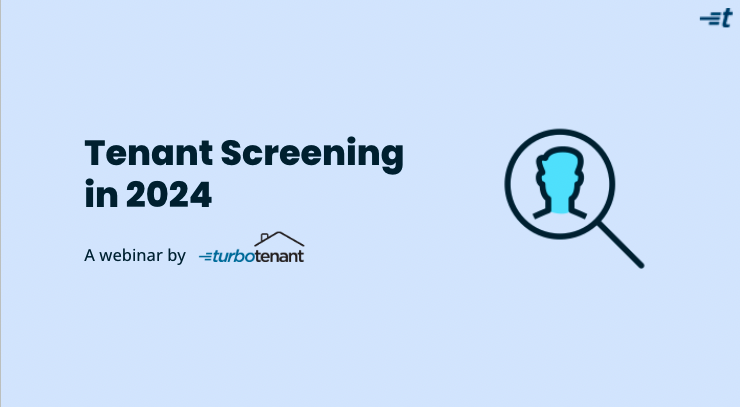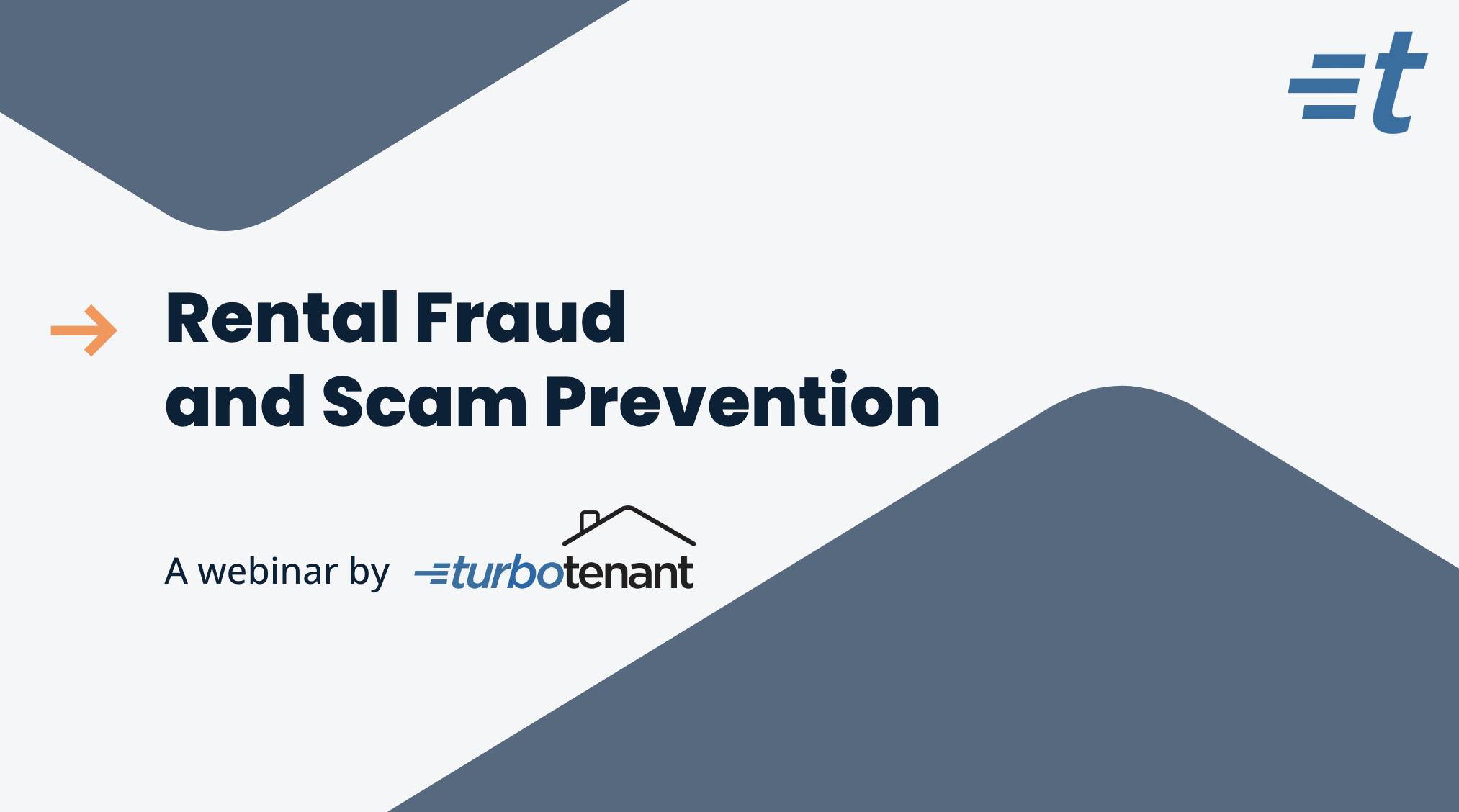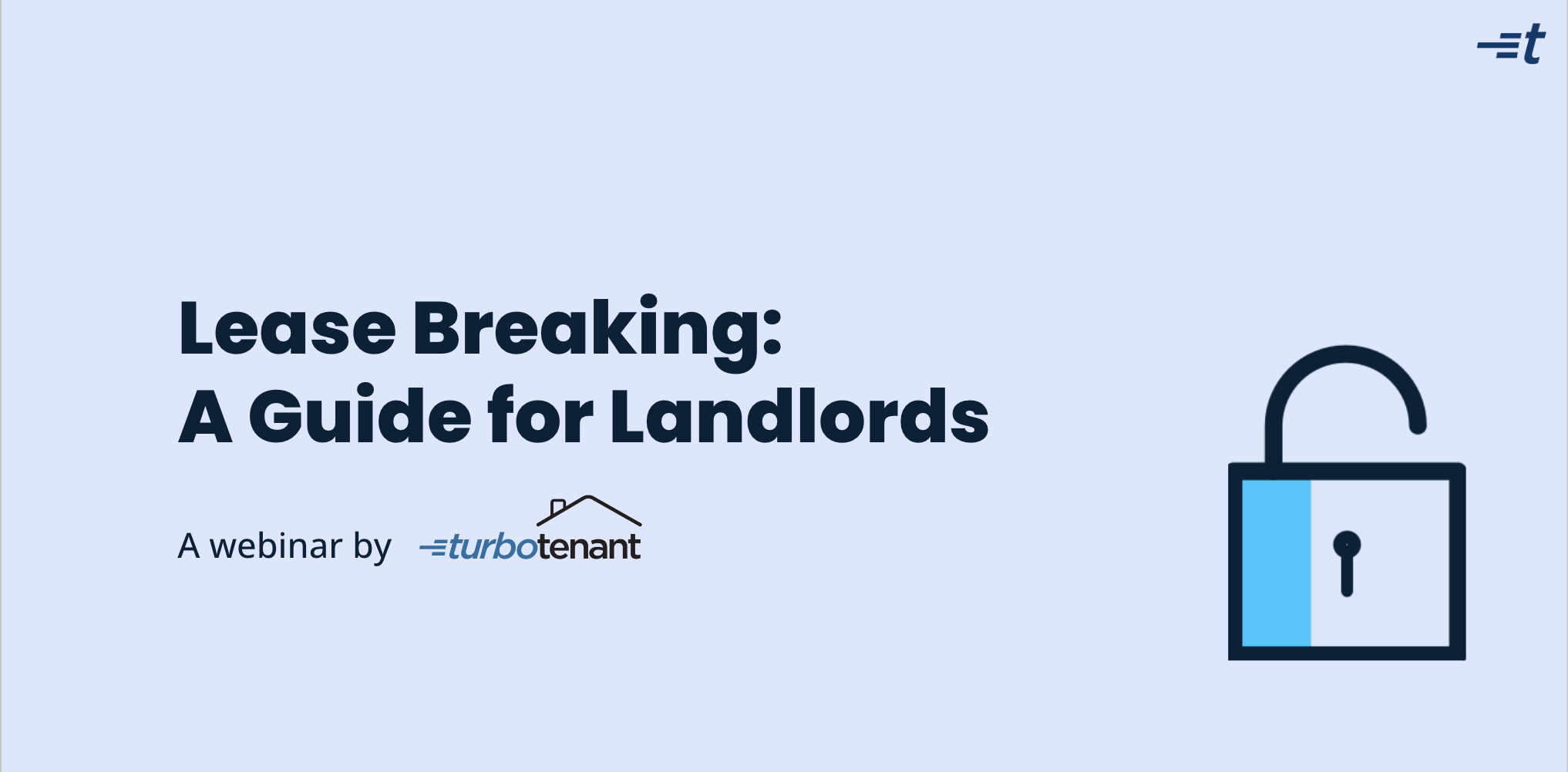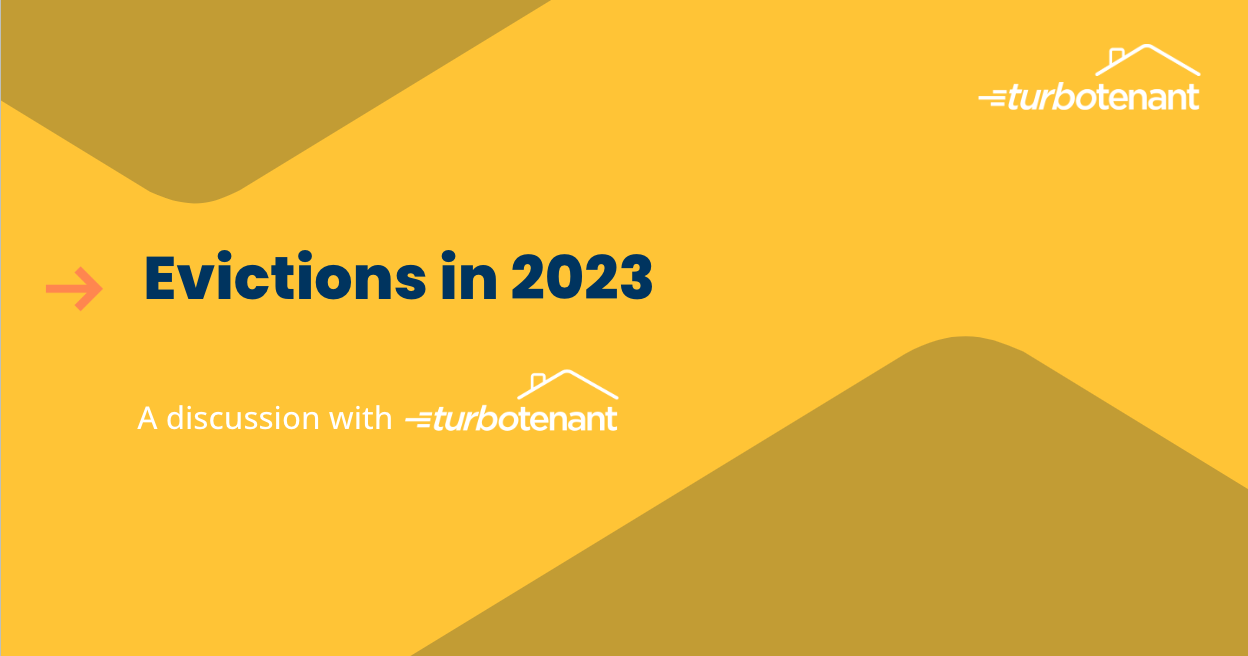Section 8 Housing Webinar
In this webinar, we explore the essential aspects of participating in the Section 8 Housing Choice Voucher Program. We’ll cover its benefits, such as steady income and reduced vacancies, while addressing common misconceptions and legal considerations. Learn how to navigate the application process, meet property standards, and contribute to community stability by engaging with this vital affordable housing initiative.
Presenters



Key Takeaways
- Section 8 Housing Awareness: Section 8, or the Housing Choice Voucher Program, is a government-subsidized housing initiative designed for low-income families, the elderly, and disabled individuals. It’s crucial to approach the program without prejudice and understand its goals in providing affordable housing solutions.
- Steady Income Stream and Reduced Vacancies: By participating in Section 8, landlords benefit from a reliable source of income, as a portion of the rent is guaranteed by the government. This program also typically results in lower vacancy rates due to the ongoing demand for affordable housing.
- Tenant Screening and Property Standards: Landlords retain the right to screen Section 8 tenants as they would any other tenant, ensuring suitability for their property. Moreover, properties must meet specific safety, quality, and cleanliness standards to qualify and continue in the program, which involves regular inspections.
- Application and Compliance Process: To join the Section 8 program, landlords must contact their local Public Housing Agency (PHA), undergo property inspections to meet the Housing Quality Standards (HQS), and comply with ongoing regulations. The initial payment process may involve a delay, highlighting the need for landlords to be financially prepared.
- Addressing Misconceptions and Legal Aspects: Section 8 tenants are not inherently problematic; they undergo stringent screenings similar to non-Section 8 tenants. Landlords can legally evict Section 8 tenants under justifiable conditions, similar to standard rental agreements, maintaining landlord rights and ensuring lease compliance.
- Community Impact: By accepting Section 8 tenants, landlords play a crucial role in supporting community stability and aiding families in need. This engagement not only provides housing but also contributes to the overall well-being and stability of the community.
- Feedback and Continuous Improvement: Engaging with local PHAs and staying informed about changes in housing laws and regulations is essential. Landlords are encouraged to provide feedback on their experiences and seek continuous improvement to benefit both their business and their tenants.
Transcript ▼
Krista Reuther:
Well. Hello everyone. Welcome to TurboTenant’s August webinar. Of course, we are discussing Section 8 housing. Today we’re going to walk you through the process, pros and cons at the very top. Just want to make a couple of notes for you here. We are going to record this webinar and email it out to you after the presentation. So check your inboxes tomorrow, you will receive a copy of the video and also a copy of the deck, which is really useful because we have links in there to help you pursue this program if you’re interested.
Krista Reuther:
Something that I think is really important to note when we’re talking about Section 8, it is important to be mindful about the stigmatization, right? So there has been a stigma around Section 8 housing and unfortunately, some people use the term Section 8 as an insult. We are not going to be doing that here. We will not tolerate that here.
Krista Reuther:
We are simply talking about this as an affordable housing program. And our only goal is to provide you with education and resources so you can make an informed decision about whether or not you want to participate in your local program. Beyond that, it’s important to note at the front and we’ll touch on it just shortly. We’re going to use the term Section 8 housing program and housing choice voucher program interchangeably.
Krista Reuther:
They are going to mean the same thing. Some states have really strayed away from saying Section 8. Some still have it everywhere. So just so you know, the terms are synonymous and everything should be good to go. If you have any questions, feel free to put them in the chat. We will have a discussion period at the very end of the presentation, during which time our esteemed panelists are going to hop on and offer their expertise.
Krista Reuther:
So I will introduce them formally later. But just know that you’re not going to want to miss out on what they have to say with that. My name is Krista Reuther. I am the Senior Content Marketing Writer here at TurboTenant, and I am joined today by my fantastic boss, Jonathan Forisha. Jonathan, would you like to tell the people that you do?
Jonathan Forisha:
Absolutely. I’m the Director of Education and Community here at TurboTenant. And if you are not already using TurboTenant, here’s a quick plug. We are your all-in-one landlord software solution. So for everything from marketing your rental to finding tenants, running screening reports and accepting rent payments, you can use us, but we won’t bash you over the head with TurboTenant ads.
Jonathan Forisha:
We are here to talk about Section 8 housing.
Krista Reuther:
It’s true. So here’s what we’re going to go over today. We’re going to explain the basics of the program, the history, the eligibility and demographics on both sides in terms of participants, the benefits and drawbacks for landlords specifically. And then we’re going to go into some frequently asked questions before we open the floor to our discussion.
Jonathan Forisha:
Excellent.
Krista Reuther:
So to start us off, we have a poll. How many tenants do you think participate in the Section 8 housing program nationally? Let us know by selecting an answer here. I would say there are no wrong answers, but as it turns out, there are three in this case. So just take your best guess.
Jonathan Forisha:
Yeah. Pressure’s on now to find the right answer. You should be seeing a poll on your screen right now. I see many of you are pouring in with your answers.
Krista Reuther:
One is clearly a loser.
Jonathan Forisha:
Right now as far as the answers are going to be interesting.
Krista Reuther:
Right. And a tie. I’m very excited to show you guys these results.
Jonathan Forisha:
All right. We will let this run for about 20 more seconds. So if you haven’t answered, please do.
Krista Reuther:
Absolutely.
Jonathan Forisha:
Just ten more seconds.
Krista Reuther:
Right. Getting down to the wire. If you want to participate, now is the time to click.
Jonathan Forisha:
Oh, all right. I’m going to end the poll. Let me share these results with everyone. Okay. So a small percentage of you thought it was 450,000. Someone in the chat just said has to be 2.22 million, that’s too specific.
Krista Reuther:
You got me.
Jonathan Forisha:
Really know you are a wise man. Yes it is. It’s 2.2 million. So it’s interesting to see 2.2, and 3 million were all pretty close. Pretty close. So about so 2.2 million people, tenants that is participate in the Section 8 housing program nationally. So around 5.2 million American households received rental assistance as of 2018.
Krista Reuther:
Great stat.
Jonathan Forisha:
Okay. So now you understand the number of tenants that you can potentially reach for Section 8 housing. Now, let’s talk about what it is. Krista, could you take us? There you go.
Krista Reuther:
Well, there we go. Here are the basics of the Section 8 housing program.
Jonathan Forisha:
Okay. So what is the Section 8 housing program? Well, this is essentially affordable housing. It is the government’s affordable housing program. And as Krista said earlier, it is also known as the housing choice voucher program. So this is sponsored by the government specifically. It’s run by the Department of Housing and Urban Development, which is the acronym HUD. You will surely hear us say HUD for this presentation that because you were referring to and it provides subsidized rental units to low income individuals and families, seniors and disabled individuals is funded by the government and administered by local public housing agencies and PHA is that acronym.
Jonathan Forisha:
You will also hear us say that a lot. I apologize for all the acronyms. I blame government and bureaucracy. It’s not our choice to create new acronyms for you to know, but essentially it is affordable housing for low income or otherwise qualifying people.
Krista Reuther:
Absolutely. Something that I think is important to note just general broad strokes of the program. Participants. So more than 80% of households participating in Section 8 subsidized housing earn less than $20,000 per year. 43% of families in Section 8 housing have children, which is the same percentage of Section 8 households with at least one disabled family member and hundreds of thousands of Americans are on a waiting list to receive this housing need.
Krista Reuther:
We’ll talk about that a little bit more later.
Jonathan Forisha:
Okay. So the history of Section 8 housing; as you may guess, the name Section 8 comes from the actual legislation that created it. So it comes from Section 8 of the United States Housing Act of 1937. But the program, the original program of Section 8 was actually established in 1974 as part of the Housing and Community Development Act.
Jonathan Forisha:
And at that time, it consisted of three parts. We had new construction, substantial rehabilitation, and existing housing certificates. As the legislation tends to do, it’s changed a lot since then. So in 1983, the new construction and the substantial rehabilitation program, portions of the program were repealed and Section 8 vouchers were added. And then in 1998, existing housing certificates were merged with and converted to vouchers.
Jonathan Forisha:
And that is, of course, why it’s also called the housing voucher program.
Krista Reuther:
Very true.
Jonathan Forisha:
Okay. So how does it work? Sort of broad strokes here. Basically how it works is prospective voucher holders apply for the program through their public housing authority and the government will run a background check employment verification to make sure that this person applying to the program actually meets the criteria. And if the PHA is unable to assist immediately, they will put them on a waiting list and so that waiting list, as you might imagine, with government programs, the waiting list is very long and sometimes can move very slowly.
Jonathan Forisha:
I will say at the top here that Section 8, there are federal rules for it, but it does vary quite a bit by state and sometimes even by city. So we are talking how it works in most places. But if you are interested after this, we definitely encourage you to reach out to your local housing authorities and talk with them about specifics for your area about that waiting list.
Jonathan Forisha:
The waiting list can also vary by state, but it’s very long. And Krista, I believe you have some stats on that.
Krista Reuther:
I do. So according to the Center on Budget and Policy Priorities among the 50 largest housing agencies, only two have average wait times of under a year. For families that have made it off of the waiting list, the longest have average wait times of up to eight years on average. Nationally, families that received vouchers spent close to two and a half years on wait lists first, which is an incredible amount of time to need housing.
Jonathan Forisha:
Yes, that’s a very long time. And people are only added to the waiting list after they have met those other criteria that we’ve talked about. So these are people who need housing in some cases. Actually, most cases are very limited on their housing options because they’re low income. So unfortunately, they’re sitting on a waiting list sometimes for up to eight years.
Krista Reuther:
So important to know.
Jonathan Forisha:
Keep that in mind as the landlord, and especially if you are yourself providing Section 8 housing or thinking about it, it’s important to put yourself in the shoes of your tenants and remember that they may have been waiting a very long time to get into a Section 8 house.
Krista Reuther:
That’s true.
Jonathan Forisha:
So once their day does come in, they their name hits the top of that waiting list. They are given a housing voucher. And with that voucher, they can then apply for properties that accept housing vouchers. So you as a landlord, that could be you. You could you could put your property up as Section 8 eligible. We’ll get to that in a minute.
Jonathan Forisha:
What that exactly means. But the way that this works then for the tenant, say they move say a Section 8 tenant moves into your housing. They would pay 30% of their household income toward your monthly rent, including utilities. And then the rest of it, 70% comes from the Public Housing Authority. So in this case, that’s the government. 70% of it will come from the government.
Krista Reuther:
Very true. So that means just to put it in layman’s terms, you are guaranteed that 70% of rent and you cannot qualify as a tenant for a Section 8 housing if you are not able to meet the income requirements insofar as paying your 30%. But we’ll talk more about the benefits of joining later. For now, let’s talk a little bit about housing eligibility requirements to join this program and the demographics.
Krista Reuther:
So as I mentioned, there are definite requirements on both sides. We’re going to talk about renters first. As we’ve mentioned, these requirements are going to vary based on locations because any aspect of the rental industry that isn’t nationally run is going to have individualized rules, which is why we’re going to stress so much in this presentation that you check in with your local for more information tailored to your state and city, especially because each can set their own requirements both for renters and tenant landlords.
Krista Reuther:
Excuse me. That being said, there are four common factors that your local likely uses to determine renters eligibility according to Section 8 housing dot org. So first is going to be the income level on average, a household income level must be less than 50% of the local median income of the area to be considered low income. Extremely low income folks are going to have an income level that is less than 30% of the local median income level of the area.
Krista Reuther:
The income limits are adjusted based on the location of the housing agency and the number of members that are in the household. So if you have a very big family and your market is very expensive, such as San Francisco, your requirements are going to look a lot different than a single person in Ohio. Another factor to consider building off of that point is the family size and composition.
Krista Reuther:
So families with more members will have a higher limit on their household income for eligibility because there are more folks presumably earning an income. If there is an elderly family member or a family member with a disability, those situations increase the likelihood that the family will qualify for the program. Additionally, your citizenship status is going to be examined if you apply to be a renter with Section 8 only citizens and certain legal immigrants are qualified to apply.
Krista Reuther:
They’re also going to take a look at your background and specifically your previous evictions. So households that have been repeatedly evicted from their housing have a higher risk of future evictions in some cases and can therefore be denied housing assistance. Though the waiting list is long, certain priority cases are given preference. So that’s usually reserved for people who are homeless or living in substandard housing.
Krista Reuther:
They pay over half of their income to rent or they’ve been involuntarily displaced. Alternatively and sadly, victims of child abuse and domestic violence often need these programs, so those cases are prioritized as well. And I did see a quick question in the chat about why there’s a stigma with Section 8 housing. Unfortunately, it boils down to low income folks and really the stigma around taking care of people who are low income.
Krista Reuther:
So we can touch on that more in the discussion portion. But I just wanted to call it out while we talk about the housing eligibility requirements for the renter side. That being said, there are, of course, disqualifiers too. These are going to vary as well, but commonly, if you have a history of evictions, specifically from subsidized housing programs and especially for serious lease violations, you’re unlikely to get a housing choice voucher.
Krista Reuther:
Also, if you engage in the use or production of illicit drugs or otherwise, show a history of abuse of alcohol or illegal drugs that can threaten the health and safety of other residents. You are not likely to qualify for the program. In fact, you vote equally if you do not have any source of income. As I mentioned earlier, you will not qualify because you are still expected to pay 30% of the monthly fees attached to your housing as a tenant of Section 8, all that being said, the party has to provide a reason for denying a Section 8 applicant so households have the option to file an application appeal.
Krista Reuther:
If any of the circumstances that led to their denial have changed.
Krista Reuther:
That being said, look at this beautiful graph. Shout out to my designer, Frankie. She’s amazing. But largely this is the breakdown of Section 8 tenants, according to HUD. So most housing choice voucher program participants are single people at 45.5%. Then we have elderly people, which is defined here as being over 62. And the final category are non-elderly disabled people.
Krista Reuther:
So usually that’s a disability that exists for life. It’s something documented, something that you cannot heal from or cure from. So that being said, it may strike you as odd that we’ve included the slide, but when we asked for questions regarding Section 8 housing, what we saw come up often was this idea of wanting to reject Section 8 applicants.
Krista Reuther:
If that is how you feel, really glad you’re here. To learn more about the program, I would encourage you to reflect on why you want to reject them outright, because, again, it goes back to the stigma of taking care of lower income folks. And I really do encourage you to sit down and ask yourself why you don’t want this broad swath of people to apply for your your unit.
Krista Reuther:
That being said, if you are someone who doesn’t like to engage in bureaucracy or we’ll touch on this later, but oftentimes the first month rent gets delayed by about two months, if that wouldn’t work for your business, these are ways that you can effectively reject Section 8 applicants without getting in trouble. Because there are some states and cities where you are barred from discriminating based on source of income or public assistance.
Krista Reuther:
Meaning you cannot reject Section 8 applicants outright. You cannot write in your listing and say “No Section 8” allowed. Otherwise you will get in trouble. That being said, you do not have to accept all applicants. One of the most crucial points of this program is that you as a landlord have the opportunity to screen these tenants as you would for any other applicant.
Krista Reuther:
All you have to do then is stay consistent in terms of what your criteria is. So if you are looking for a specific income level or a certain credit score, having those standards in place will allow you to review a Section 8 application and turn it away. If it doesn’t meet those standards. And that works well if you live in one of these places with rules barring you from denying Section 8 applicants.
Krista Reuther:
Also very important to note, do not make screening harder or costlier for Section 8 applicants because you will run the risk of violating fair housing laws. So biggest piece of advice stay consistent and really just focus on finding the best tenant for your property. So use tenant screening like what we offer at table tenant to validate that the person you are looking at to rent your unit is someone you want in there based on their background.
Jonathan Forisha:
I’m so sorry to interrupt! The screening of your tenants cannot be overstated. It is important whether you’re renting to Section 8 tenants or non Section 8 tenants. Screening your tenant and knowing exactly who you’re getting in there is very, very crucial. I think some people think that Section 8 tenants cannot be screened like you would any other tenant.
Jonathan Forisha:
That’s actually not true. And we would recommend that you do screen them just as you would anyone else. And that includes credit check criminal background if your area allows it. And eviction history. Part of being in this program, the government will do their own background check but it it probably makes sense to just go through it the exact same way that you would for any other applicant.
Krista Reuther:
Exactly. That’s a great addition, particularly because if there are things in their background that you wouldn’t accept from a non Section 8 tenant, you don’t have to accept them. There is not any government rule that says that you have to accept all Section 8 applicants. So just bear that in mind. That was a big misconception that we kept running it to.
Krista Reuther:
Also, if you live in a state that doesn’t require you to accept applications from S.E., it’s even easier to not accept applications because you just have to avoid submitting your property for program approval. And then again, just maintain specific tenant criteria that you apply to everyone. So another example of things of something you can’t do, you cannot tell a Section 8 applicant that the rent is going to be higher than what it is or falsely inflate it so that it’s beyond the fair market value, which is what the looks at to determine if they’re going to pay the subsidy.
Krista Reuther:
So keep it consistent. Treat them as you would any other tenant. Screening is crucial if you don’t want these folks in your rental unit for whatever reason. Well, actually, specifically, for the reasons of bureaucracy or it wouldn’t fit with your business model. These are our recommendations. If it’s any other reason, again, I really challenge you to sit with yourself and work out why.
Krista Reuther:
Moving right along here. Let’s talk about the property types. So wait, it might have skipped on me, did it? No, no.
Jonathan Forisha:
You’re good. Yeah.
Krista Reuther:
Okay. I’m doing great. Okay, so actually, let’s see here. There we go. So, as a landlord, in order to be eligible for this program, your property is going to have to go through specific steps and inspections, which we’ll touch on later. But by and large, you have to be committed to providing decent, safe and sanitary housing. That means agreeing by the program’s rules and passing both the initial inspection and annual inspections thereafter to ensure that you’re providing a safe and sanitary space for people to live.
Krista Reuther:
Sounds pretty straightforward, right? In terms of property types. Bank rate lists the following as the most common options for Section 8 housing. So you’ll see single family homes, condos, multi-family apartment buildings, single rooms in a house or apartment building, group homes, mobile homes, everything you can think of. It’s very likely that you can apply to be a Section 8 landlord with that property type.
Krista Reuther:
So it’s great. It means the program is flexible and regardless of what property is in your portfolio, you could likely find something that would work really well for Section 8.
Jonathan Forisha:
And with that another poll.
Krista Reuther:
Well, well.
Jonathan Forisha:
Okay, this time we are asking what type of property is most commonly rented in Section 8 programs? All of you should see a pop up with this poll question. Take your best guess.
Krista Reuther:
I will say close readers of our emails already know one option. That is not the answer.
Jonathan Forisha:
It’s a great time to plug our weekly newsletter, which is called TheKey.
Krista Reuther:
Yes it is. That is a newsletter, right? Every week it has fun stats and interesting articles, both from TurboTenant and yours truly and external trends, topics and other tricks that you should know as a landlord to boost your business. So if you haven’t subscribed, highly recommend it. I am a little biased because I write it, but I think it’s chock full of good information that you could use.
Jonathan Forisha:
I completely agree. I’m also extremely biased, but you can sign up at TurboTenant.com/blog, so check that out.
Jonathan Forisha:
Okay. I’m gonna let this go for just a few more seconds here. You got most people. And no Timothy, if wrong, you want to guess again. All right. The post doesn’t give us that option I believe in. You know, I think you have to write. All right. We’ll give it just seconds. Okay. Going to end it. And now I will share the results with everyone.
Jonathan Forisha:
Okay. So what what type of property is most commonly rented in Section 8 programs? 10% of U.S. homes, 17% said high rise buildings, 24% will rise. Okay. It looks like the winner was fully detached, single family homes. And the answer that are correct.
Krista Reuther:
You guys are so smart. Look at you go. That is true. So most Section 8 tenants live in single family detached homes. If you take a look at this breakdown on screen, you can see how it shakes out with these different property types. But again, even if you are just renting out a single room, that is an option under Section 8.
Krista Reuther:
So very flexible program that many landlords could participate in should they wish. Right. So here’s another exciting tidbit, which is how do you join? What can you do? It’s a bit of a process, but we will walk you through each step. So to become a Section 8 landlord, first and foremost, you are going to want to contact your local chain.
Krista Reuther:
The PHA will provide you with details on their specific process tailored to your location and also provide you some methods of posting your vacant units. The PHA may also share specific websites or platforms that they use to advertise available rental units. And that can be really important because, again, you’re trying to help these people get housing as soon as possible while maintaining your due diligence.
Krista Reuther:
I will say that you could also use something like turbo tenant to market your properties and by including something like Section 8 vouchers welcome or Section 8 tenants apply, you will be opening the door and letting those folks know that you are accepting their applications. Once you have your listing up, you can select a tenant based on your own rental criteria.
Krista Reuther:
They may also come to you and then in which case you would screen them and make sure that they pass your specific standards for tenants. You’ll then have them fill out. Actually, excuse me, you will fill out their request for tenancy approval form this is a form from the page, basically walking through the property, details how much you charge for rent, etc. because the page has to determine that your proposed rent is reasonable compared to similar units in the marketplace.
Krista Reuther:
So they’re basically assessing the fair market rent in your area and they want to make sure that your rent isn’t higher than the rent paid that you’re pitching for. This tenant is a higher than rent paid by other tenants on the premises, basically. Are you trying to take advantage of the program? If so, they will not let you in the program.
Krista Reuther:
Next step is going to be the inspection. So as we mentioned earlier, there is an initial inspection. When you’re joining Section 8 and then you will have receive inspections yearly or every two years after that point. It has to be a specific inspector who can conduct a housing quality standards inspection or HQ s another fun acronym for you.
Krista Reuther:
They are going to require that you meet or your property meets 13 specific standards regarding various areas of the house. So they want to take a look at things like sanitary facilities, your food preparation and refuse disposal areas, space and security. I won’t read this whole list to you because I think you would get bored of me. But just bear in mind, they’re going to be looking through the entire thing and inherently making sure that it’s safe, sanitary and secure for tenants to live there.
Krista Reuther:
A couple things to note that are very important. Your inspector will tell you if there are any deficiencies that would bar you from passing your inspection. There are two types of deficiencies non-life-threatening deficiencies. Think about like doors not latching all the way or a broken window that’s boarded up. And then there are life threatening deficiencies. A roof is breaking, the sewage line runs into your waterline, things that are not safe or sanitary.
Krista Reuther:
If you have a non-life-threatening deficiency, you have 30 days to repair that. If it’s a life threatening deficiency, you have 24 hours to make that repair. After both scenarios, you’re going to need to redo the inspection. And we’ve included some resources here to show you the inspection flowchart should you fail again, detail some of the timelines and some of the unique situations that can come off of that.
Krista Reuther:
One last note on these standards, different property types are going to have different additional requirements and inspection procedures. So these 13 are going to apply across the board, particularly for single family and multifamily houses. But if you are renting out something like a single room, there are going to be additional requirements. So for example, with a single room, they’re going to make sure that the tenant would have access to the single room without having to walk through anybody else’s living area, that they’re adequate fire exits, things of that nature.
Krista Reuther:
So manufactured homes, congregate housing, single room occupancy, shared housing and group residence. You can expect an additional set of requirements.
Jonathan Forisha:
And as you see people in the chat asking who pays for this inspection? That is part of the Section 8 broker. So the PHA will send the inspector?
Krista Reuther:
Good question. All right. But once all of that is done, your house or your property has passed, then you can sign the lease with your tenant and you’ll also sign a housing assistance payment contract, which dictates what percentage of the rent will be paid by the tenant versus the program. Remember, that’s a 37 split. And then you will start receiving payments.
Krista Reuther:
Now you’ll note here I put a little asterisk. We will discuss this shortly. I’ve alluded to it, but your first payment is likely to be delayed. Bureaucracy am I right? Okay, so now let’s talk about the benefits of participating in Section 8 housing as a landlord. First off, you’re going to earn a steady income stream because unlike tenants from the private market, you know that you’re guaranteed to receive at least a portion of the rent owed to each month via the housing subsidy.
Krista Reuther:
You’re also going to enjoy reduced vacancy rates because once your tenant moves out, as we mentioned, with that waitlist, there are hundreds of thousands of people waiting to move in nationally right. So that means someone is going to be eager to get in there and is likely to contact you faster than you might see on the private market.
Krista Reuther:
Additionally, voucher holders have undergone screening to qualify for the program. Again, can’t stress this enough, you should still do your own screening. But knowing that they’ve at least passed the first round of screening can make you feel even more secure in the results that you get from turbo tenant or whatever tenant screening tool you use. Lastly, helping people in need is so huge.
Krista Reuther:
Like we said, people have to wait for a significant amount of time to secure affordable housing and it can be really heartbreaking. There have been stories of people who have been on waiting lists for an exorbitant amount of time, and that’s really painful. Not having a secure place to live causes a myriad of problems psychological, physical, health. Why?
Krista Reuther:
Like there’s so much that gets packed into not having somewhere safe to call home. So by participating in this program, you are helping people achieve that safety, which I think is really fantastic. That said, I want to paint you the full picture again. Our purpose today is to provide you with the resources and education you need to make the choice for yourself.
Krista Reuther:
I’m not here to convince you to join Section 8 if you don’t. If it wouldn’t work for your situation. So let’s talk about the drawbacks. You are going to be required to meet standards set by HUD’s Real Estate Assessment Group. So RTC, those are the inspectors, the specialized inspectors, and only these folks can qualify your property as being good for the program if your property doesn’t pass that inspection, either initially or as the years go on, you will be asked to perform additional maintenance and try again.
Krista Reuther:
Additionally, on average, the first payment with a new Section 8 tenant is delayed by about two months. As such, it’s highly recommended to have enough money available to pay your mortgage or any other operating expenses for the first few months. If you are accepting a Section 8 tenant for the first time. Lastly, you’re going to be limited when it comes to increasing your rent because Section 8 housing vouchers are paid out based on the annual fair market rent in your area.
Krista Reuther:
You can’t increase rent beyond that established rate or otherwise you will not qualify for the program. That being said, there are a couple of situations in which you could revisit the amount of rent being paid. You’d have to talk to your. And typically these leases are at least a year long. So I would expect you stay in one at one rate for the year.
Krista Reuther:
But if you do something like an overhaul of some amenities, you increase the value of your property compared to similar properties in the area. Or if the properties in your area see an uptick in local rent prices, then you can increase your rate to match that. But just remember you are looking to provide value for these people and it’s not necessarily going to be a it’s not going to be a case where you can just jump in and charge whatever you’d like.
Krista Reuther:
So keep that in mind. All right.
Jonathan Forisha:
Hey, now getting into some fake news. The chat has been popping off, so a lot of people have been asking questions that we are about to get to. So stay with us for a few minutes longer here. We will start to get into some of these questions. Okay. So first up and landlords charge HCV tenants the same amount as non HCV tenants.
Jonathan Forisha:
If the proposed rent is reasonable and isn’t higher than other units in the area with similar amenities, the answer is yes. I think that this is a common misconception with Section 8 housing is that you have to charge less than market value. That is not true. So landlords can charge full rent no matter who the tenant is, whether they’re Section 8, whether or not Section or HCV, non HCV.
Jonathan Forisha:
So if you make substantial upgrades on the fair market rent for your area, sorry, if you make substantial upgrades or the fair market rate for your area increases, then you can increase the monthly rent charged with pay to approval. That goes back to what Kristy just said, that it is done on an annual basis. So these last few years as we’ve seen rent prices skyrocket and a lot of cities, you could only do that annually likely and I say likely because again, so much of this depends on your local VHA, your state regulations, your city regulations.
Jonathan Forisha:
There are going to be very vast differences. But in this case, yes, you can charge full rent.
Krista Reuther:
Absolutely.
Jonathan Forisha:
Okay. Number two, how does a security deposit work within the Section 8 program so you can charge a Section 8 tenant the maximum deposit that your state allows, just as you would with any other tenant.
Jonathan Forisha:
And as with any rental unit, we recommend that you charge the maximum amount that your state allows. The reason for that is not to, you know, put somebody and even worse financial situations than they already are. It’s to cover you. Hopefully, if everything goes well and your screening process has worked out and your tenant is amazing, then at the end of the lease term, they’ll get that money back anyway.
Jonathan Forisha:
The idea is not to charge exorbitant security deposit and get rich off their security deposit. That’s not at all how this security policy should work. We include a link here that has a chart that will show you every state, including your own, and what your state’s rules are about security deposits. Many states allow a month sorry. Many states allow a security deposit maximum to be the equivalent of one month’s rent.
Jonathan Forisha:
Some states allow one to half. Some states allow two months. Some actually don’t have any limit. So that will that will be determined by your paycheck. What is reasonable this Section 8 voucher does not cover security deposits. So we’ve already talked about the fact that the monthly rent, 70% of it is covered by the Section 8 voucher. That is not the case with the security deposit.
Jonathan Forisha:
So your Section 8 tenant in this case would be the one paying that security deposit if they are unable to. There are other housing assistance programs that can help them pay that, but that is something to keep in mind and the amount when I say equal to a month of rent, I want to clarify that that means the entire amount of rent.
Jonathan Forisha:
So for example, in a state that allows a maximum security deposit equal to one month’s rent, let’s say that unit goes for $1,000 a month. And the renter being a Section 8 voucher holder, only pays $300 a month. The security deposit may still be up to $1,000. That full month of rent and people asking if we can drop that link.
Jonathan Forisha:
Let me. There you go. I just put that in the check.
Krista Reuther:
And just as a reminder, when we send out the recording to you, you will also get a copy of the stack so you don’t have to scramble and try and click the link. Now, if you don’t want to.
Jonathan Forisha:
Okay. Another very frequently asked question What recourse do I have if there is damage to my property? Well, you can withhold the security deposit just as you can with any other kind of renter that is ever in your unit. That could lead to the PHA asking the renter to pay for repairs if there are damages that go beyond the security deposit.
Jonathan Forisha:
And then if the renter refuses, then their housing voucher may be terminated. Now, for you, the landlord, you may be thinking, okay, well, that doesn’t really help me, but that is a pretty serious, pretty serious bad thing to happen to this voucher holder. If they don’t have a voucher, they can no longer participate in Section 8 housing. And if they are disabled or low income, then that may be kind of their only option for finding affordable housing in their area.
Jonathan Forisha:
So Section 8 does include a provision that if a tenant more than $500 in damage to the property, the landlord can file a claim in small claims court against the tenant. And you may be able to access a mitigation fund for monetary assistance. Big asterisk on that last part. Obviously, it is contingent on your state and city rules.
Jonathan Forisha:
Yes, I’m saying it again, we look into your local laws for specifics on these kinds of issues. So the example that we have here is say that if a unit goes for $900 a month and rents say you charged a security deposit of $500, the tenant causes $1,000 in damages. So obviously they cause more monetary value in damages than you have in their security deposit.
Jonathan Forisha:
So HUD will pay damages up to $400, which is the rent minus security deposit. So that’s our note down here in the corner that says the claim amounts caused by a Section 8 tenant cannot exceed the monthly rent amount less than secreted by them. So I know this may give you pause as a landlord that obviously you don’t want to invite people in who are going to cause a lot of damage.
Jonathan Forisha:
Of course. Of course you don’t. And that is why, once again, we would say that you should absolutely screen your tenants, be they Section 8 or otherwise. You need to know who these people are, where they’ve been, what they’ve done. To some extent, we recommend inspecting the inside and outside of your Section 8 property frequently. That being said, don’t just bargain.
Jonathan Forisha:
Obviously, let your tenant know that you intend to come by. It’s also a good opportunity for them to let you know if there are any issues with the property that you can hopefully fix that gives you the opportunity to catch the small problems before they become really big problems. It’s something, you know, say there’s a dripping foster well, you can catch it while it’s still just a dripping faucet before it turns into I don’t know how water damage in your walls, for instance.
Jonathan Forisha:
Also, be sure to charge late fees and stick to the terms and conditions of release. That is something else we cannot overstress is make sure that your lease is well-written and make sure that everyone, you and your tenants understand every part of it. Your tenant potentially losing their voucher is a very big deal, so they will not want to lose their voucher.
Jonathan Forisha:
And again, going back to that misconception of of through Section 8, tenants are they’re not trying to just get a free ride. They are typically down on their luck. They are low income and they want to cooperate with you.
Krista Reuther:
It’s well said.
Jonathan Forisha:
So that actually dovetails pretty nicely into this next one. Aren’t HDB tenants problem tenants? No, no, they are not HTP KB tenants are typically long term renters on average. They live in a rental unit for 7 to 8 years. So that is definitely another pro of this program is that if you get an HCV tenant into your unit and they’re great and they pay on time and everything is going well, well that could be eight years that you could have them happily renting your unit.
Jonathan Forisha:
At eight years you wouldn’t have to look for other tenants. So there are no documented statistics proving that renters are any more likely to damage a unit or to not pay their rent than their non HD views. But once again, make sure you’re screening your tenants. I saw somebody ask how you get a criminal history check in the chat.
Jonathan Forisha:
I great to find a plug. Turbo tenant, screen reports, terms and screen reports. We use TransUnion for all of our screening reports. And so that includes a credit check, a criminal history and an eviction history. B, the criminal history and the eviction history. It may be it may not be allowed in your area. And if that’s the case, it would not include that.
Jonathan Forisha:
But it is a very thorough background check. So you’re exactly who you are potentially renting to. And yes, I saw somebody ask what HPV is. Apologies for using the acronyms Housing Choice Voucher Program. So it is essentially interchangeable with Section 8. It is the same program. Okay, now evictions. This one’s always hot too. So frequently asked. Question Isn’t it impossible to evict a Section 8 tenant for lease violations?
Jonathan Forisha:
No. No, it is not. You can absolutely evict them if you have grounds for eviction. So I want to stress that again, because these are not problem tenants. If you are providing Section 8 housing, you should not go into it thinking where are you going to have to go to an eviction proceeding? No, you never want to go to an eviction proceeding.
Jonathan Forisha:
Eviction proceedings are horrible for both sides. I’m sure there are people on the call right now who have gone through an eviction proceeding and can attest to the fact that it’s bad for both sides. Nobody wins really in an eviction proceeding. It’s just to try and take trying to make a horrible situation slightly better. So the tenants with the Section 8 voucher don’t have any additional protections against evictions, and they’re held to the lease agreement and terms and conditions, just as any other tenant would be.
Jonathan Forisha:
If you do have cause to evict a Section 8 tenant, you have to notify the public housing agency again and also the tenants anywhere from 60 to 90 days prior to the actual eviction. This is very similar to a normal eviction proceeding. The only difference is you have to include the page and all of your notifications. And important note here.
Jonathan Forisha:
If your tenant is disabled, you must provide this notice in a form that’s accessible to them. So say, for instance, that you have a tenant who is blind. You can’t just mail them a letter and say you’re good because they will not be able to, to, to, to read that. So with most evictions, most evictions you would encounter in non HCV housing, it’s, it’s going to have the same reasons for going to an eviction proceeding as your HCV housing.
Jonathan Forisha:
So the most common reasons to evict the tenant are unpaid rent, property damage, harassing neighbors, subletting unauthorized pets or illegal activities such as drugs. All of that is the same with HCV tenants just as it is with non HCV tenants. And we do have a stat from New America from 2014 to 2016 that the national average eviction rate was only 2.6%.
Jonathan Forisha:
So I say that to emphasize that while evictions certainly do happen, they are not terribly common. So same goes with HDB tenants as non HCV. So I would say that the biggest difference for Section 8 tenants in evicting them is the possibility of an even more emotional eviction process than usual. These tenants typically have nowhere else to go.
Jonathan Forisha:
That’s why they’re part of the HCV program to begin with. So evictions are never fun, but Section 8 evictions can be especially harrowing.
Jonathan Forisha:
Okay. And our last frequently asked question before we open it up to discussion, if I accept the one HCV tenant. Do I have to dedicate all my units to HCV tenants? No. You are not obligated to rent to other HCV tenants. If you do decide to rent to multiple HCV tenants, be sure not to steer them toward a specific location.
Jonathan Forisha:
So by this we mean if you have a multifamily property, so you have multiple floors of rental units, you can’t say yes, always. All my HCV tenants are floor three. I’m just going to shove them all on floor three. That is called steering. That is definitely a violation of their housing laws. You cannot do that. So if you are open to tasting, taking HCV tenants, then you have to allow them to have access to any of your units.
Krista Reuther:
Absolutely. Well, Jonathan, thank you for going through all of those frequently asked questions, guys. We pulled those from the responses you provided. So thank you so much for participating there. We’re now going to open up the floor for a discussion. So we have a couple of fantastic panelists here to help us today, Gurpreet Singh has had a passion for real estate since childhood and helping with his father’s residential real estate portfolio and his grandfather’s commercial real estate for years.
Krista Reuther:
And he has personally been in real estate directly for almost 20 years, including residential, retail office and even industrial recently. Over the years, he’s had direct experience with Section 8 and Section 8 vouchers in Montgomery County, Maryland. And we also have Turbo Tenant’s excellent paralegal, Jean Sanford. In the chat today. I will say please note we are not going to give you legal advice and we highly, highly recommend that you seek out information from your Local four Brook troop program, details in your area.
Krista Reuther:
That said, we are excited to chat with you about Section 8 housing.
Jonathan Forisha:
And Corey has also joined us. Corey Ruppersberger.
Krista Reuther:
That’s fantastic. Okay. Corey Ruppersberger is another heavy hitter. He founded Best Choice Loan in 2014. And he acts as their president helping helping his clients reach their financial goals through a consultative approach. He brings over 25 years of experience in the mortgage and banking industry to the table that are awesome.
Jonathan Forisha:
All right. Well, welcome, Gurpreet, Corey and Jean. So we have a very lively chat. Let’s see if we can flow through here. Any of our panelists, have you guys been watching the chat? Have you seen any questions you especially want to get to?
Krista Reuther:
Oh, I see one. If I might jump in. David Balu asked, Can you rent to a family member and use Section 8? Great question. No, you cannot have a family member or anyone you related to as a Section 8 tenant. So that is a big no no in the program.
Krista Reuther:
Okay. GP, I’m curious if you could speak to your experience with Section 8 tenants, whether or not there are undue difficulties or how you’ve moved past those in your personal experience?
Gurpreet Singh:
Yes, absolutely. So I think that there definitely is a stigma. People have a, you know, unfair bias against them. And I have personally experienced good and bad situations where, you know, maybe a property was very well taken care of. And the portion of rent that they owed was paid on time. I believe one of the properties we have was rented for 14 years and is pretty well taken care of and was paid on time and that others which we had to evict and we had $10,000 of damage within a year or two.
Gurpreet Singh:
So it kind of goes both ways. But that’s true of, I think all of our tenants. I think the key point here is I think they’re very similar to regular tenants. And what you’re really getting is that guaranteed monthly income once it starts, like, you know, the rents going to show up on time as opposed to a month later or two days later, nine days later or whatever, that kind of thing.
Gurpreet Singh:
And so that’s good. And so what we what we’ve done is we’ve kind of mixed our portfolio where some of our properties are Section 8, some of them aren’t. So we know some of them are coming in and some of them we can take a little more risk. And it’s fine that we use non Section 8 tenants.
Krista Reuther:
Fantastic. All right.
Jonathan Forisha:
Good. A few people have asked the same question, which is how about not renewing a contract? And by that, I think they’re asking not renewing a Section 8 weeks.
Gurpreet Singh:
I think you have your it’s totally within your rights. You know, you can choose any tenant you want it renewal time. You can give them notice and find another tenant if you’re not happy with them, just like you would with any regular tenant. And we’ve done that in the past.
Krista Reuther:
Great answer. Yeah.
Gurpreet Singh:
As long as the lease is over the two year lease, you got to be obligated. As long as that lease is fully over, I think there’s no problem with it.
Krista Reuther:
Absolutely. Well said. Someone asked a similar question saying, hey, what if I what if my property has deficiencies but I don’t want to fix them? Well, then you can opt to not join the program. They will want you to make sure that any deficiencies are fixed. I also saw someone else ask about the sanitary component and saying, you know, does that mean that tenants don’t have to clean up after themselves?
Krista Reuther:
Not at all. What they are. What the inspector is looking for regarding the sanitary component is making sure that your property is sanitary, that there aren’t, again, like raw sewage bubbling up underneath the floors, that it’s a safe and clean space for people to live.
Gurpreet Singh:
In our local area. On the deficiency issue, we have had not very common but have had in the past where the will withhold the rent payment until that inspection occurs and the repairs are actually performed so they can delay the rent payments if they are an annual inspection and they want you to perform a particular repair.
Krista Reuther:
That’s great to know.
Jonathan Forisha:
We had one we had one person ask, how do you verify the validity of their voucher?
Gurpreet Singh:
You can call hot, you can call the PHA. And there’s also some paperwork that has to be processed. And so it’s kind of it’ll come out pretty quick. I think we haven’t had a problem with fraud there, to be honest.
Krista Reuther:
That’s great. And all right, Corey, I know you have some diverse experience with how Section 8 could be applied. I see a couple questions in the chat about builder programs, but I know specifically you told me about Section 8 being applied to homeownership. Could you speak to that?
Corey:
Yes, thank you. One of the things that as our that our company does with investors is we try to develop a plan where we can work with your tenants credit building towards homeownership, which is a win win for everyone involved. So maybe it’s two years of a rental and with a goal to have that tenant eventually purchased purchased the house from the investor or the landlord.
Corey:
And that’s one of the things that we’ve been trying to build, not just with Section 8, but with tenants in general. And there’s a lot of benefits because being able to sell the house to your tenant is, is gives you an opportunity to sell the property to someone new. You build a relationship with. You don’t have to use real estate agents pay real estate commissions.
Corey:
It’s it’s an avenue that you can help them with getting into the property and purchasing property from you. And when it comes to Section 8, there’s a very not as well known program called the Section 8 Homeownership Program and that it varies where you are. Some states and some counties don’t have the funds for it. But depending on where you are, there are there is the ability for a tenant to use their voucher towards homeownership and to have that voucher go towards a mortgage.
Corey:
So it’s an interesting program and we’re trying to build it and really taking up an approach where our company is a for profit company. But we we like to get involved in areas that also have, you know, a win win court, let’s say, calls investing for everyone involved. So if anyone is interested in learning more about it, it’s something that I’d be happy to offer information on.
Corey:
It’s probably worth a whole seminar on its own, so thanks again for having me.
Krista Reuther:
Fantastic. Thank you for being here. Okay. Yeah, I saw somebody ask about VA S-H. Let me find it again. I believe it is, Mr. Turner. So how do VA VA S.H. Veteran vouchers and SRO single room occupancy work? It’s a great question. So my understanding with the veterans vouchers is that there are around 75,000 housing vouchers that are set aside for veterans.
Krista Reuther:
Specifically regarding single room occupancy, you can absolutely rent out a single room and accept Section 8 vouchers. Excuse me. There are just going to be additional requirements that that space has to fulfill. Right. So as we mentioned earlier, it’s going to be things like does the tenant have direct access to that room without going through someone else’s bedroom?
Krista Reuther:
Is there a safe fire exit? Do they have multiple ways of exiting? But we have provided links in the deck, which you’ll be emailed afterwards that you can look over all of the special requirements for unique properties.
Jonathan Forisha:
Okay. We had a good question from Brian, who said, is there concern with Section 8 not honoring current market rental rates with the huge increases in rents that have been taking place in the past few years? And then he said, reading about how certain markets, i.e. Phenix and Atlanta, where rents have skyrocketed recently.
Krista Reuther:
It’s a great question. Do you have any experience with like the market rent increasing and what was your take as the Section 8 land or were you able to increase after the lease was up?
Gurpreet Singh:
Yes. So we have done several increases in the past, maybe not every year, but we have I wouldn’t say there like right now there’s a wild market out there with rent. Maybe rents have gone up like 20% or 30% in some cases. We’ve never received an increase like that, but we were also never in a market like that.
Gurpreet Singh:
But we have received regular increases. I think we do have to request them. We got to follow the process in the paperwork and we have to notify them all in advance. So on top of that, I think it’s definitely possible. One way to optimize I’ve seen in our market is there there’s tables, sort of tables based on bedrooms and how is the housing type for our area.
Gurpreet Singh:
And so you can optimize by, you know, turning a three bedroom into a for things like that where you it’ll just kind of pop the rent up and depending on the neighborhood, you can optimize that it could be better than even theoretically market rent because I think they have these pre-established tables in our market that I’ve used in the past.
Gurpreet Singh:
I thought sometimes are more favorable for the investor actually, but it depends.
Krista Reuther:
Okay. I saw a question that would be like really great for us to answer from. Steve, are you paid back for the two month wait for the first voucher or does it start with the one that you receive? So I don’t know. Was your first payment.
Gurpreet Singh:
Because it was it’s bigger. You get the money, you just get a larger chunk at once.
Krista Reuther:
Gotcha. That is good to hear.
Jonathan Forisha:
In after that waiting period. The checks are pretty consistent, right?
Gurpreet Singh:
The regular. Yes, the regular every month. The only thing that’s going to stop them is an inspection that doesn’t occur or that need to be performed as a result of an inspection. Otherwise going to be going to tastic.
Krista Reuther:
Okay. All right. I want to be cognizant of the time. However, I do see a couple folks in the chat asking for Corey’s contact information. So, Corey, if you have a website or anything you’d like to drop in there, please do. Alternatively, I could drop in best choice loan dot com slash Corey if you’d like actually.
Corey:
Yes, it’s actually best loan choice dot com. But that’s okay. That’s yeah, yeah, that’s okay. I know people get that, but yeah best loan choice dot com and actually email sometimes you see or why at best loan choice dot com would be the best to if you have a scenario you’d like to go over with me.
Krista Reuther:
Fantastic. And would you like me to drop your LinkedIn link in the chat just in case folks want to chat with you?
Gurpreet Singh:
That’ll be fine. Okay.
Krista Reuther:
No pressure. You could tell me. No in front of all these folks. And I will not do it.
Gurpreet Singh:
It’s. No, no, it’s perfectly fine.
Krista Reuther:
Wonderful. All right. I will get that in there as well. Okay. Are there any good wrap up questions? One more, because I know we’re about it time.
Jonathan Forisha:
Some people have asked about tax incentives or how offering Section 8 housing will factor on your on your taxes that you file don’t if anybody can give some insight on that.
Gurpreet Singh:
I mean, we could do taxes every year. We had a rental property. And I can say that I don’t think there’s any special items from the this program that really makes it makes changes to your your taxes. I mean, you got your depreciation, you’ve got all your standard items you can do all your affairs, you can deduct everything.
Gurpreet Singh:
I don’t think there’s any specific tax incentive that I’ve heard of in our area that we can take advantage of by being part of section excellent excellence.
Jonathan Forisha:
Now, good to know.
Krista Reuther:
All right. One last question. Someone’s asking about average rent. Just to reiterate sense, the amount of rent that you’re allowed to charge is based on fair market value. The average rent that Section 8 tenants pay is going to be the same. Or at least I should say this the average amount of rent that you receive is going to be the same as what you would receive from a non housing choice voucher tenant.
Krista Reuther:
So just keep that in mind. Okay. Otherwise, I want to let you guys go. Be free to have the rest of your day. Thank you so much to our esteemed panelists, Corey and Jean are emotional support paralegal. Jonathan, your time has been valuable as well. We will go ahead and send you out the recording and deck after this presentation.
Krista Reuther:
So keep an eye on your inbox tomorrow. We’ll have another webinar next month and there is going to be a survey at the end of this if you’d like to vote on the topic for that next webinar. So thank you guys all so much. It’s a pleasure to chat with you. Have a great rest of your day.
Top questions asked by the audience:
What are the main benefits of participating in the Section 8 program for landlords?
The main benefits include a steady income stream since the government covers a portion of the rent, reduced risk of vacancy, and potentially fewer issues with rent collection. The program also helps provide stable housing for low-income tenants.
Are there any specific property standards that need to be met for Section 8?
Yes, properties must meet Health and Safety standards set by the local Public Housing Authority (PHA). This includes basic requirements for cleanliness, structural integrity, and safety features.
How does the application process work for landlords interested in Section 8?
Landlords must contact their local PHA to express interest. The PHA will provide guidance on required documentation, inspections, and lease agreements. Once approved, the property can be added to the Section 8 listing.
What are common misconceptions about Section 8 that landlords should be aware of?
Common misconceptions include the belief that Section 8 tenants are more likely to damage property or that the program is complicated to navigate. In reality, the program provides a structured system with protections for landlords and tenants.
Can landlords increase rent if they are part of the Section 8 program?
Rent adjustments are subject to approval by the PHA. Landlords can request rent increases, but they must justify the change and ensure it falls within the program’s guidelines and local market rates.
How often are property inspections conducted for Section 8 properties?
Inspections are typically conducted annually by the PHA to ensure ongoing compliance with program standards. However, additional inspections may occur if there are tenant complaints or reported issues.
What happens if a landlord does not meet the Section 8 program requirements?
If a landlord fails to meet the program requirements, the PHA may require corrective actions, and in severe cases, may terminate the landlord’s participation in the program.
Are there any financial or tax incentives for landlords who participate in Section 8?
While there are no direct tax incentives for Section 8 participation, landlords benefit from a steady income and potentially reduced vacancies. Some local programs may offer additional incentives.
How does the lease agreement work under Section 8?
The lease agreement is between the landlord and tenant, but it must be approved by the PHA. It outlines the terms of the rental, including rent amount and responsibilities, with the PHA paying a portion of the rent directly to the landlord.
Can landlords screen Section 8 tenants as they would other tenants?
Yes, landlords can screen Section 8 tenants, but they must comply with fair housing laws and cannot discriminate based on the tenant’s participation in the program. Screening criteria should be applied consistently to all applicants.



























